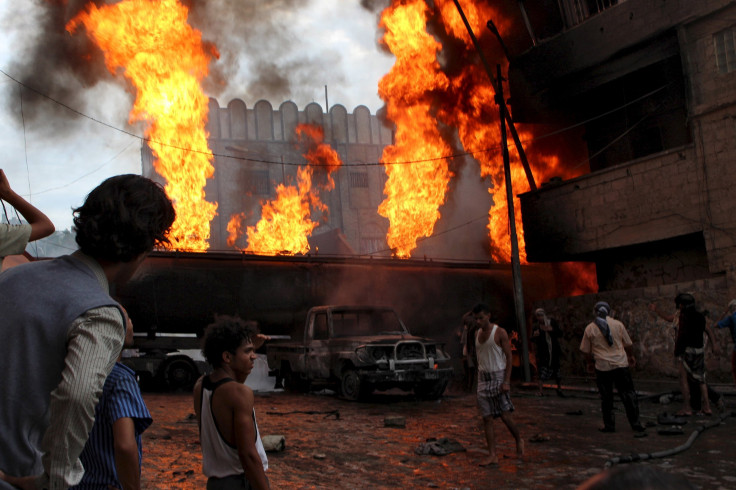Yemen Crisis: 8.6 Million People In Need Of 'Urgent' Medical Aid, WHO Says

The World Health Organization (WHO) on Wednesday warned that Yemen’s medical situation is becoming increasingly dire, saying that the “unnecessary loss of innocent lives cannot go on.” WHO also cautioned that despite a five-day humanitarian ceasefire earlier in May, the strife-torn country is still in desperate need of aid.
The comments come amid reports that airstrikes by a military coalition attacking Houthi rebels in Yemen had killed at least 80 people on Wednesday, the largest death toll in one day since Saudi Arabia and its regional allies began their bombing campaign in late March, the New York Times reported.
“Almost 8.6 million people are in urgent need of medical help,” WHO Director-General Margaret Chan said in a statement. That number is almost a third of the country’s total population.
The U.N. estimates that nearly 2,000 people have been killed and about 8,000 injured since the conflict began, and that number is set to keep rising, “not just due to the violence, but as a health system that has been seriously damaged barely copes with the extraordinary needs posed by the unrelenting violent conflict and can no longer provide them with the health services they need to stay alive,” Chan said.
A round of U.N.-sponsored negotiations between Yemen's warring factions was set to be held in Geneva this week, but was postponed indefinitely, reportedly at the urging of exiled President Abed Rabbo Mansour Hadi. The ousted leader and his Gulf allies have demanded the unconditional withdrawal and surrender of the Shiite Houthi rebels, which they have refused.
In the absence of a diplomatic solution, the violence continues to worsen, and Chan warned that hospitals and emergency centers are shutting their doors amid massive shortages of fuel, food and medical supplies. Infectious diseases like malaria and dengue fever are spreading, and there are risks of more diseases like polio and measles breaking out in the stricken country, according to WHO.
The International Committee of the Red Cross (ICRC) warned that Yemen’s citizens are massively reliant on imports of essential commodities for their day-to-day lives, and that the disruption of these imports could have a catastrophic impact on the country.
"Humanitarian agencies can do things, but it will be the tip of the iceberg," Cedric Schweizer, head of the ICRC's delegation in Yemen, said, according to Reuters. "Most things are political decisions -- access to fuel, ensuring that the importation of normal medicines for chronic diseases can be allowed, and food because 90 percent of food is imported in Yemen."
© Copyright IBTimes 2024. All rights reserved.





















